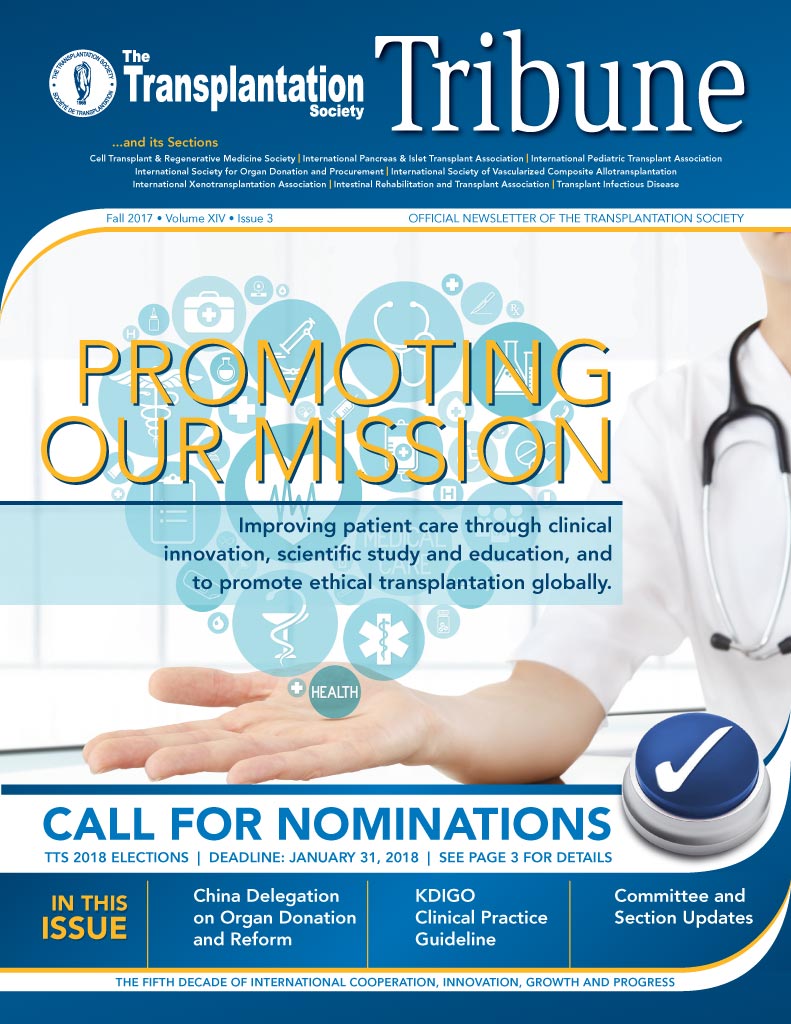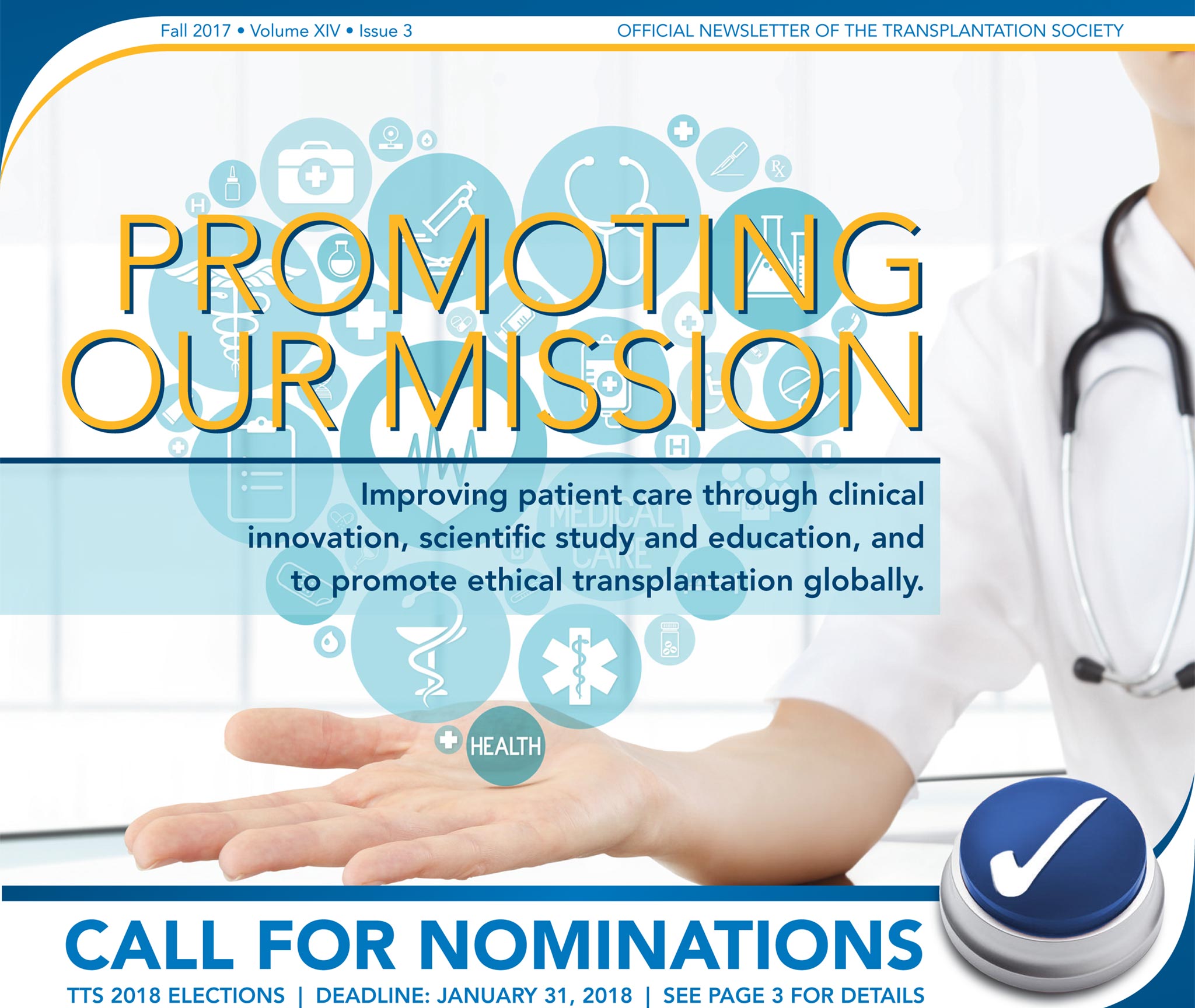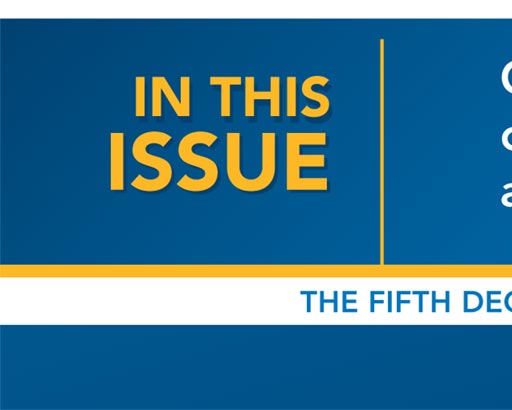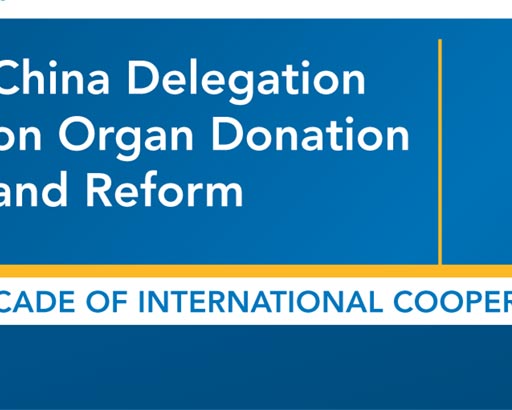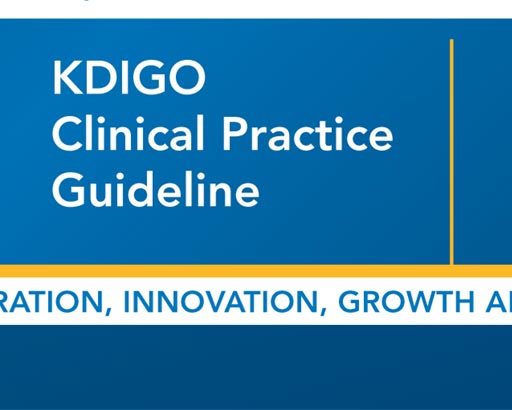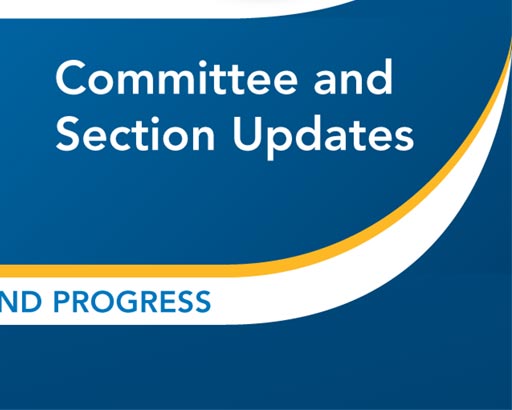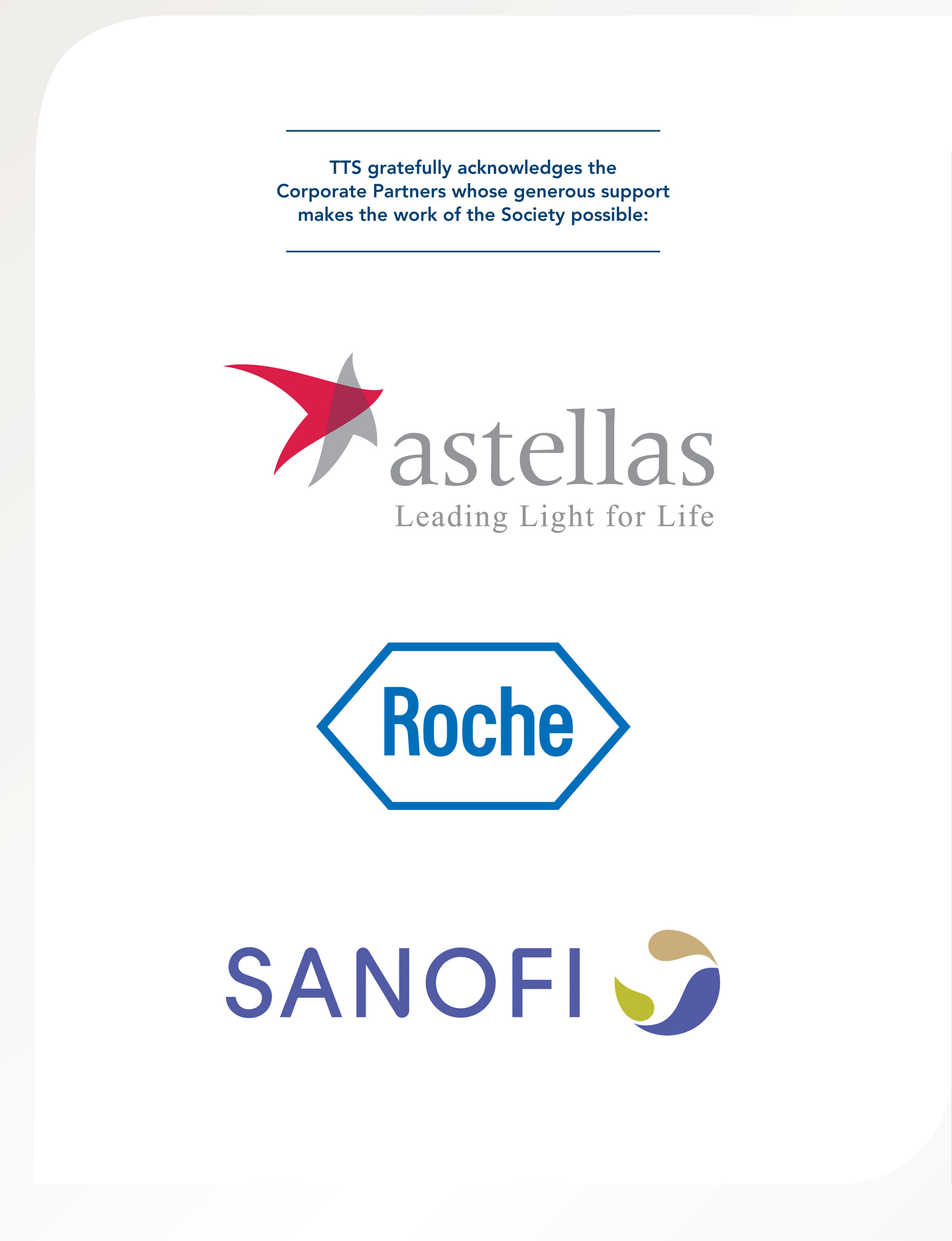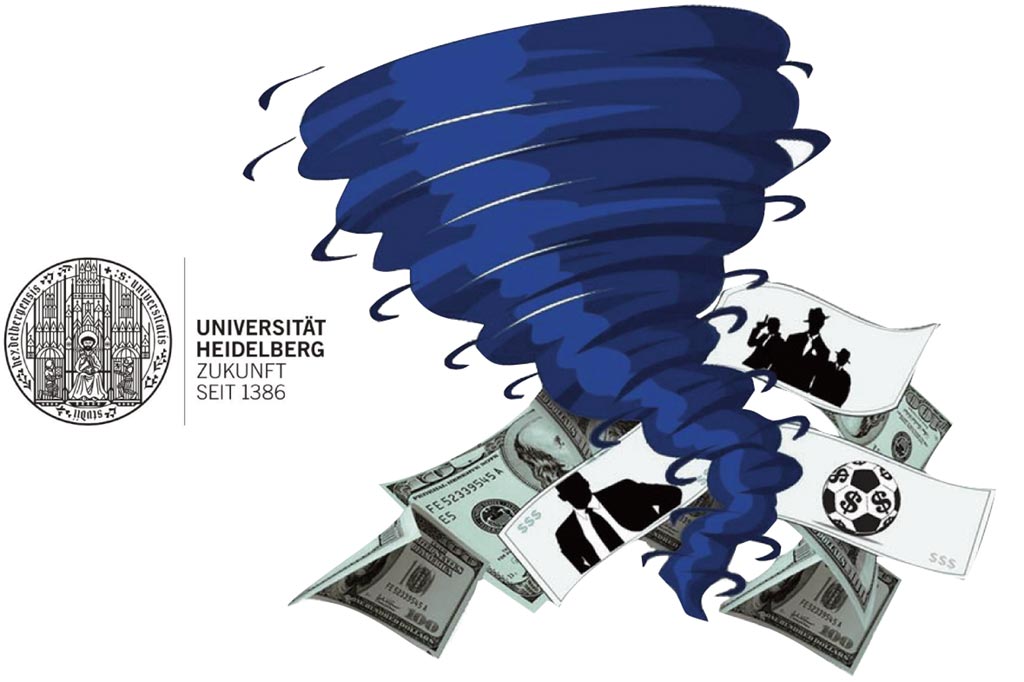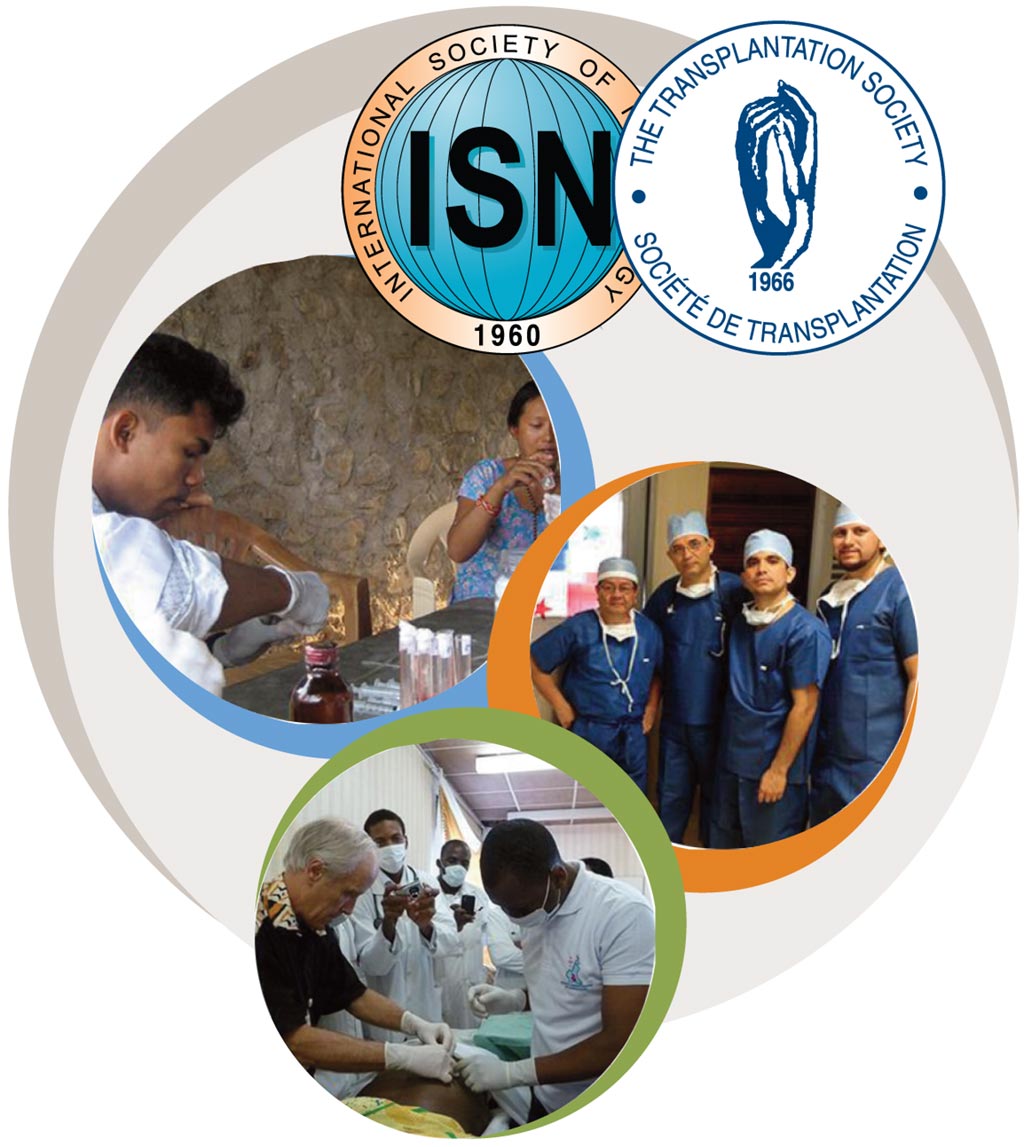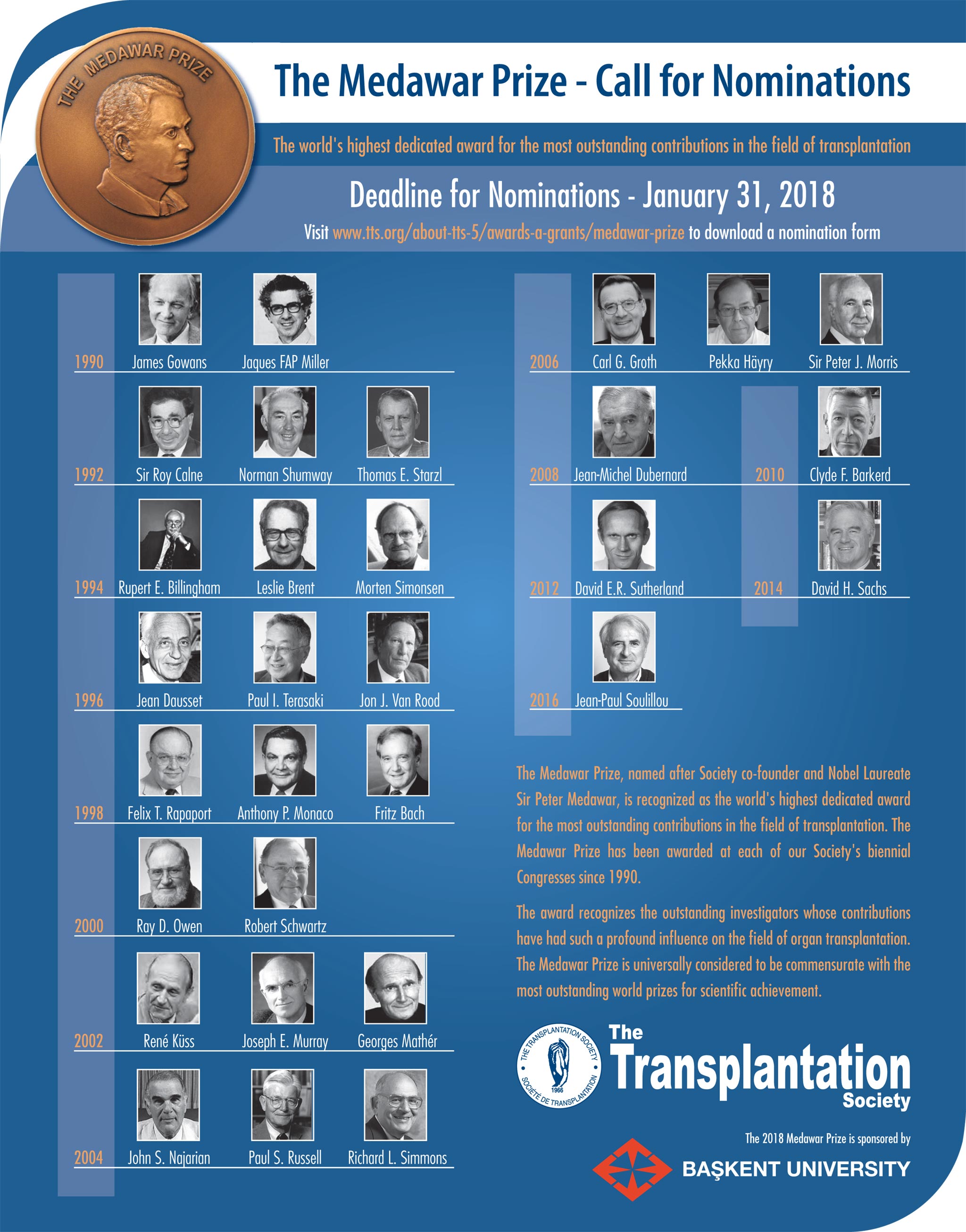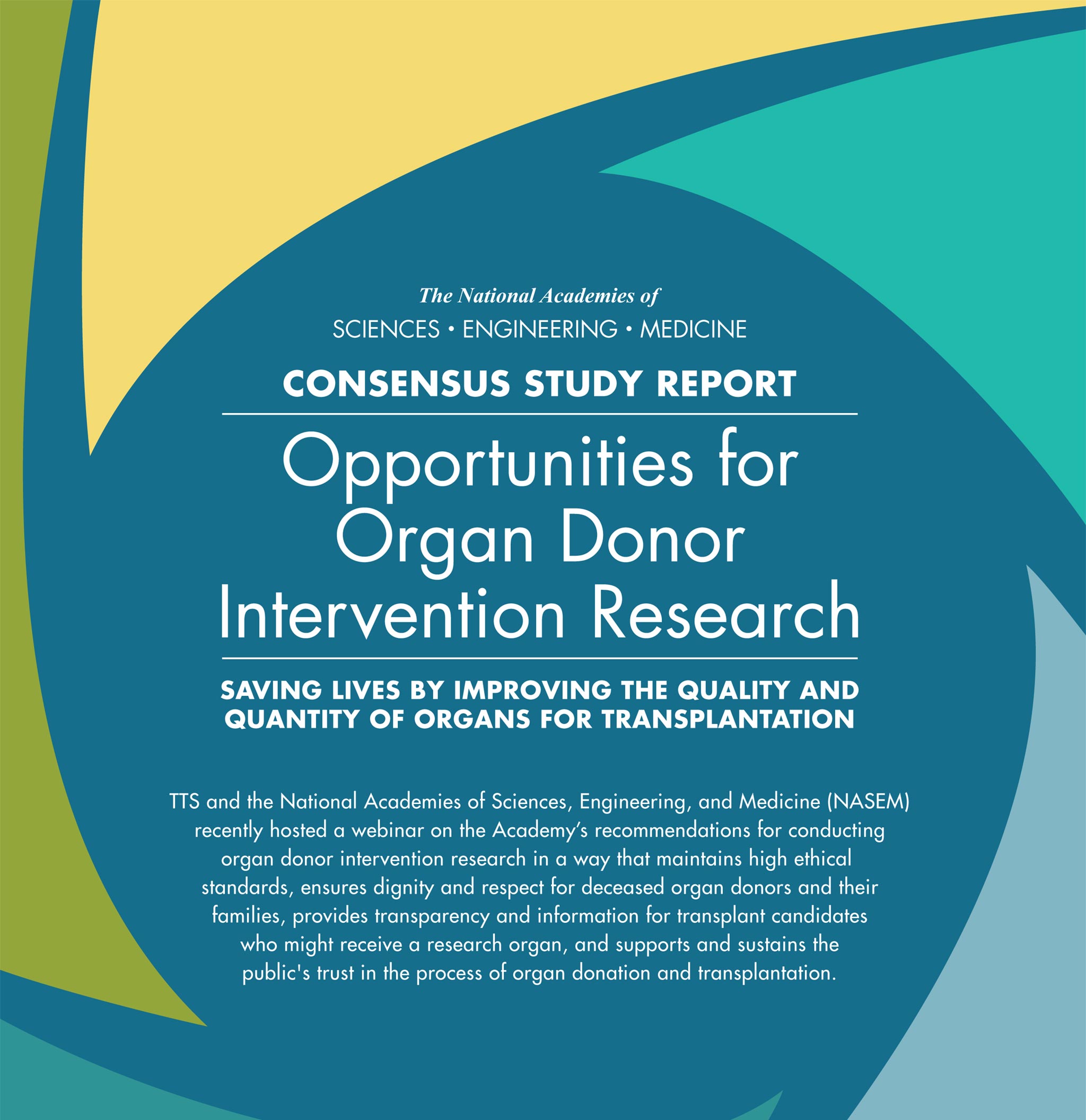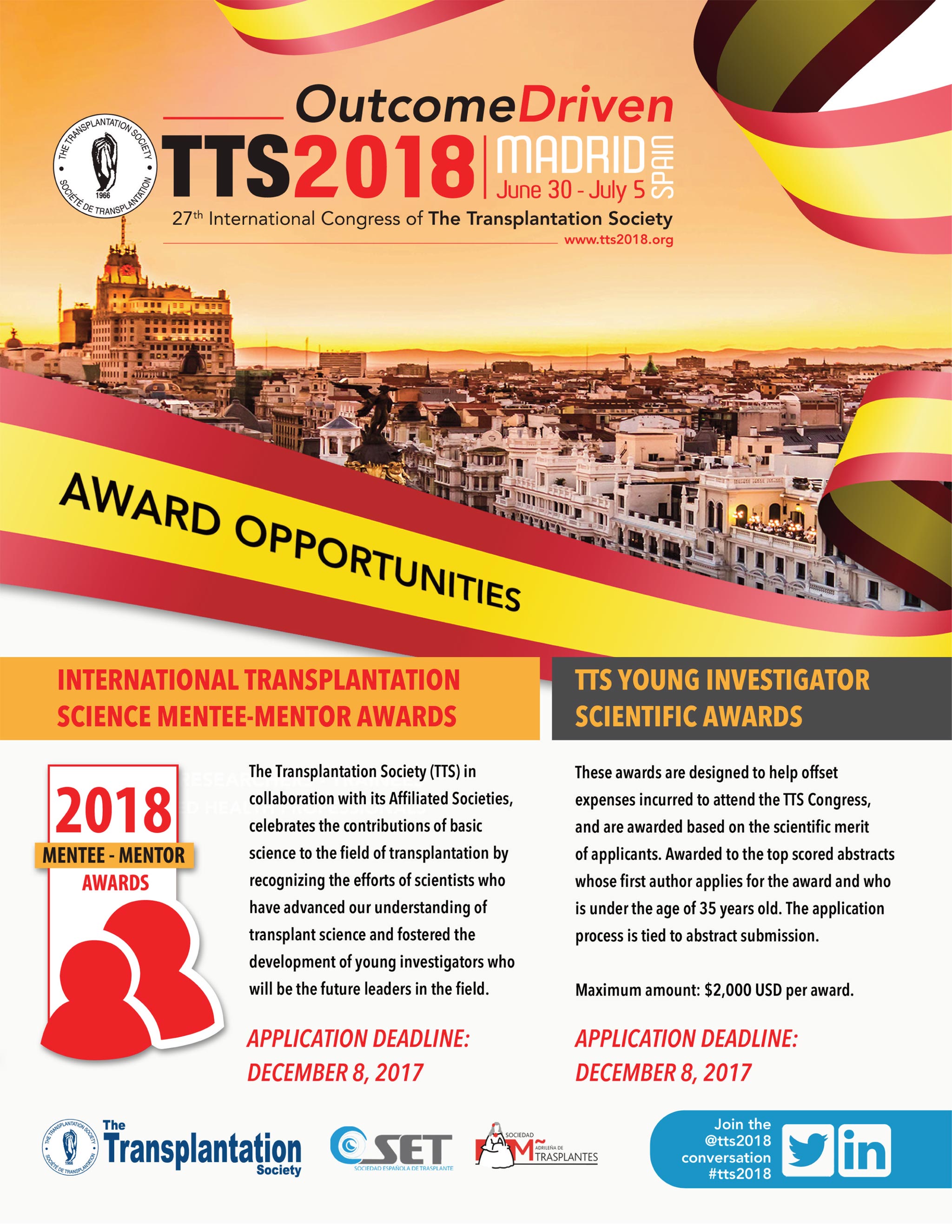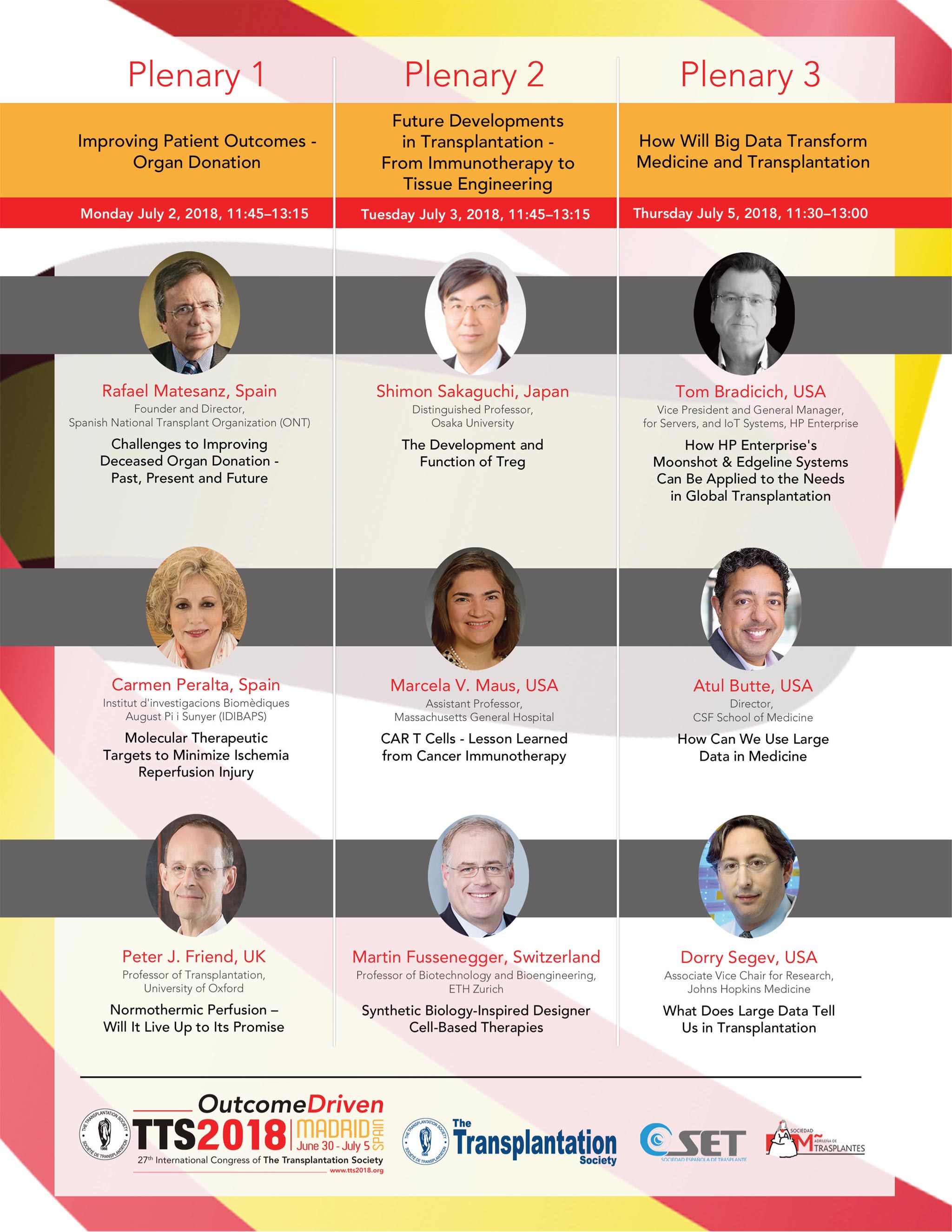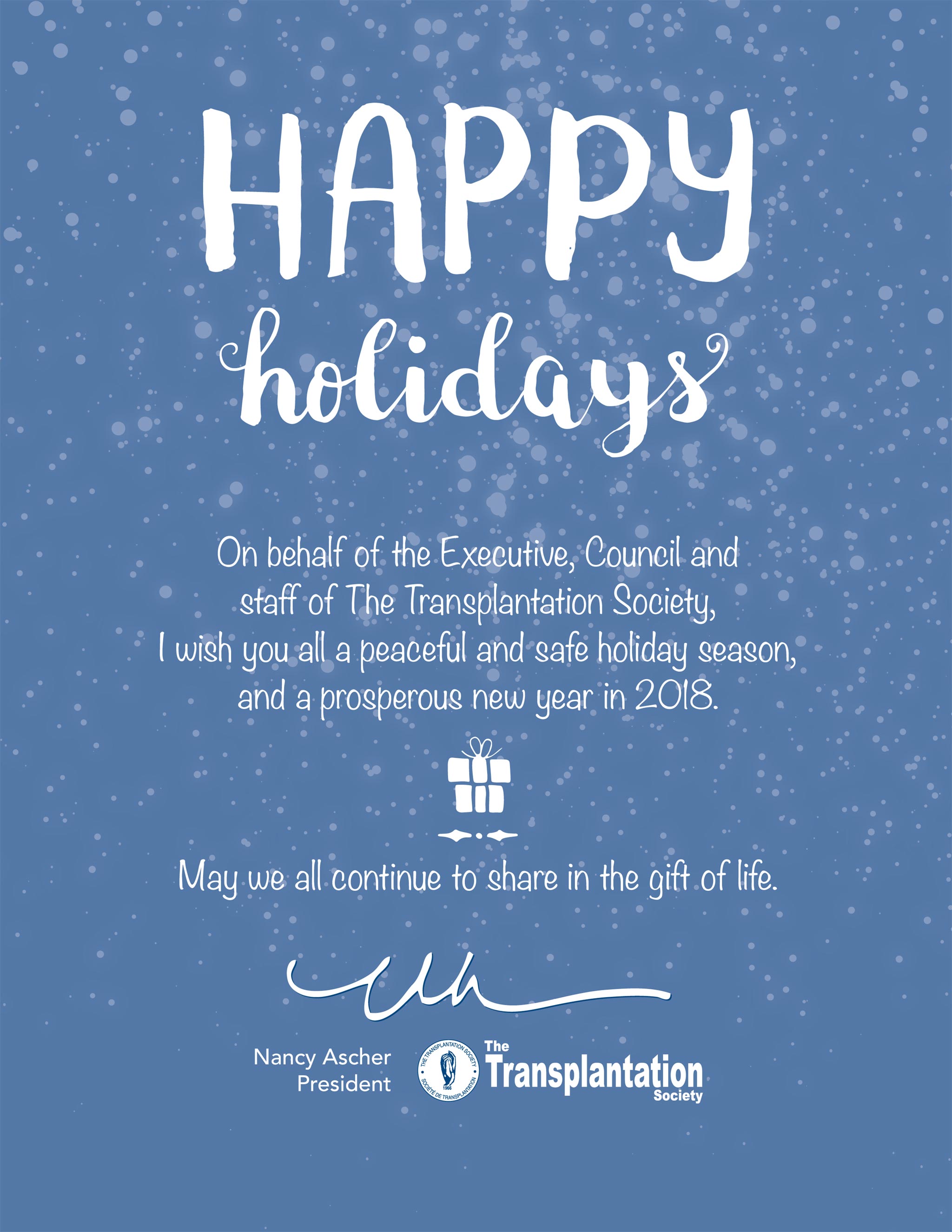Newsletter 2017 Volume 14 - Issue 3
In addition to supporting the eight international congresses of our Sections, TTS has been represented at numerous meetings around the world: the 7th Master Class in Liver Disease (MCLD) in Chennai, India; the Iranian Transplant Society meeting; the 2017 World Transplant Games in Malaga, Spain; the Pontifical Academy of Sciences Summit on Organ Trafficking and Transplant Tourism, at the Vatican City; the ISN World Congress of Nephrology 2017 in Mexico City; the 2017 American Transplant Congress in Chicago, USA; the 18th Congress of the European Society for Organ Transplantation (ESOT 2017) in Barcelona, Spain; the 2017 Congress of International Liver Transplantation Society in Prague, Czech Republic; the 2017 International Transplant Nursing Symposium in Orlando, USA; the 2nd International Congress of Organ Transplantation of Mongolia in Ulaanbaatar; the XXIV Congreso Latinoamericano y del Caribe de Trasplante (STALYC 2017) in Montevideo, Uruguay; the 3rd Russian Congress on Organ Donation and Transplantation; the 68th Session of the WHO Regional Committee for the Western Pacific in Brisbane, Australia; and, the Herrenhausen Symposium on Bribery, Fraud and Cheating in Hanover, Germany.
The Herrenhausen Symposium, held at the University of Heidelberg, focused on the efforts of the transplantation community in identifying and combating organ trafficking and commercialization. It is clear that TTS input, ethical framework and leadership is valued throughout the world, and it is important that our membership is kept abreast of these activities.
The Transplant Leadership Series, supported by Sanofi and ably led by Medhat Askar, began its work with 22 individuals chosen from around the world. These individuals were chosen for their potential to take on future leadership roles in transplantation. The group has been assigned its coursework and mentors, and we hope to celebrate our new leadership group in Madrid.
We are delighted to announce expanded support for the joint ISN-TTS Sister Transplant Center Program. This effort, under the TTS leadership of Dirk Kuypers and Phil O’Connell, is set to begin its 5th year of providing opportunities for new kidney transplant programs to be supported and mentored by established, mature programs. We are also hopeful to make progress in the development of the sister programs in liver transplant under the auspices of TTS and the ILTS.
The Declaration of Istanbul Custodian Group, under the leadership of Dominique Martin and Elmi Muller, is undertaking an update of the Declaration of Istanbul to address current challenges in organ trafficking. The work is being reviewed in a series of meetings and stakeholder forums, and the DICG plans to present its work at the Madrid 2018 Congress.
Early next year, TTS will hold its elections. The open positions, which includes President-Elect, and the requirements for nomination aree available on the TTS website. Please take the opportunity to review the open positions to determine how you could serve our Society. The deadline for nominations is January 31, 2018.
Lastly, my best wishes to the transplant community for the New Year and I look forward to seeing you in Madrid!

In 2018, three Officer positions will be vacated and 5 of the 12 councilors-at-large representing the regions will be changing. The elections will take place early in 2018 and those elected will assume their new roles starting at the 2018 TTS Congress in Madrid.
Members can access the online nominating form at www.tts.org/nominations. Since each nominee must have his or her form signed by three supporting members (including him/herself), the online process allows for efficient and rapid circulation.
The nomination deadline is January 31, 2018.
Please note:
-
As successive presidents may not be from the same region, members from the Middle-East/Africa region who would have otherwise been eligible to become President-Elect are not eligible in these elections.
-
Only members who have served a full term on Council are eligible for the Officer positions (President-Elect, Vice President and Treasurer).
-
Only full members who have paid their dues may nominate and/or vote.
For more information on elections, visit the TTS website and consult the By-Laws in the “About” section.
Nominations are being sought for these positions.
Officer Positions:
- President-Elect
- Vice President
- Treasurer
TTS Regions:
- Europe (1)
- Latin America (1)
- Middle East / Africa (1)
- North America (1)
- Oceania (1)
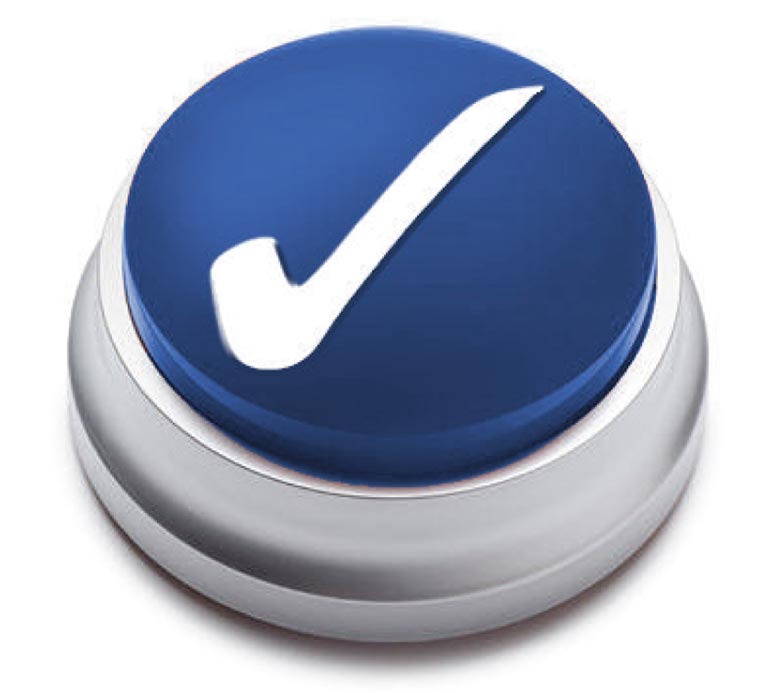
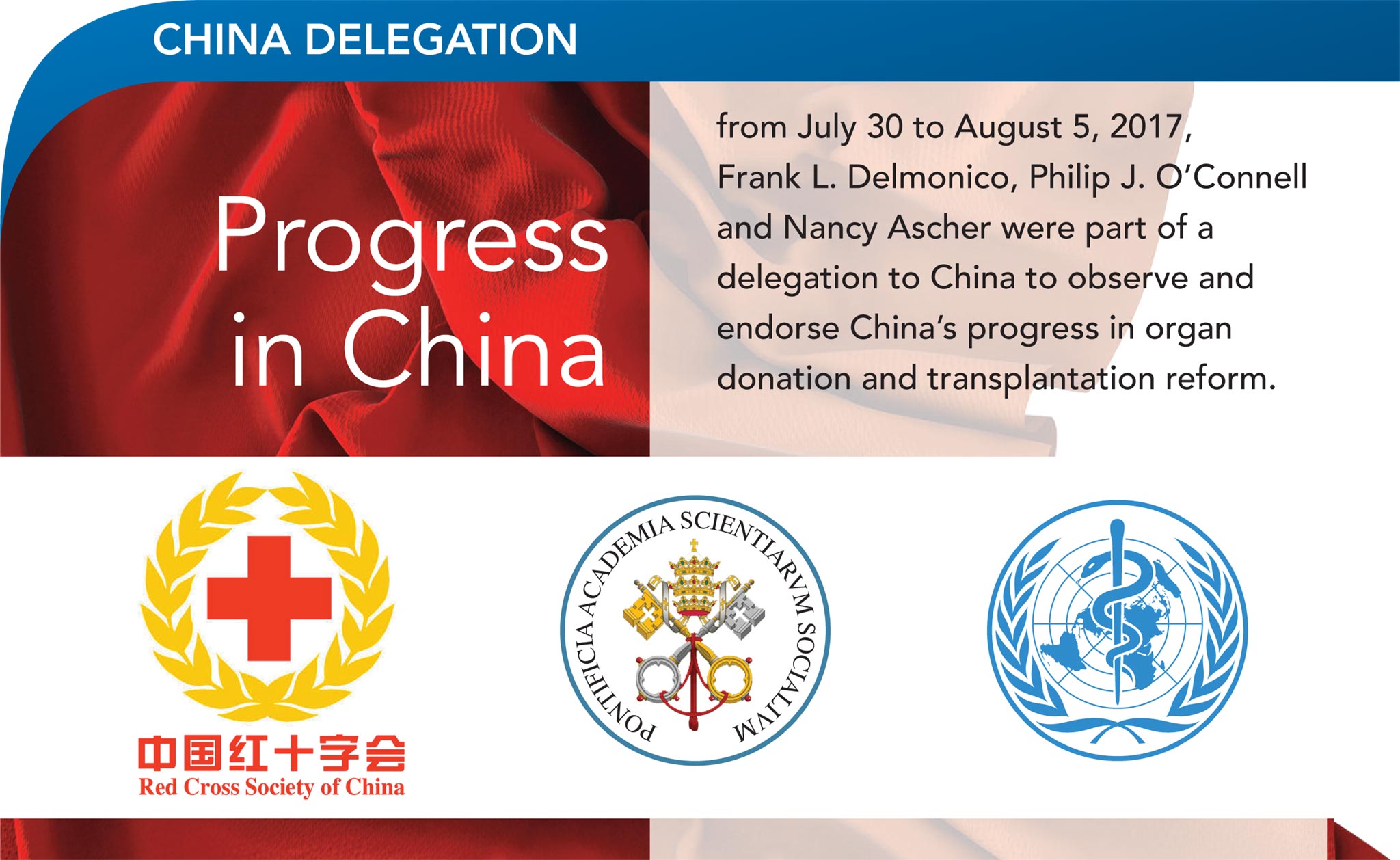
The group of TTS leaders was joined by Marcelo Sorondo, the current Chancellor of the Pontifical Academy of Science and Pontifical Academy of Social Sciences, Vatican City; and Dr. Jose Ramon Nunez from the World Health Organization. Dr. Campbell Fraser, an expert on the international human organ trade from Griffith University, Brisbane, also joined the group.
Drs. Nunez and Ascher met with the Director of the Chinese Red Cross who clarified the Chinese Red Cross position on aid to deceased donor families; the aid is need-based and unrelated to whether or not a donation process proceeds to a successful retrieval. A subsequent meeting with the entire delegation and the Chinese Ministry of Health reinforced the Chinese Government’s commitment to both reform in China as well as an interest in improving organ donation and transplantation activity and outcome in neighboring countries.
Chancellor Sanchez Sorondo presented the recommendations of the Pontifical Academy of Science (PAS) Summit Consensus Statement on Organ Trafficking and Transplant Tourism, which was endorsed by the PRC National Health and Family Planning Commission at meetings in Beijing and Kunming. Dr. Nunez presented the WHO framework for responsible transplantation and concepts of national self-sufficiency. Drs. Ascher, Delmonico and O’Connell offered The Transplantation Society’s commitment to assist in China’s development of an ethical organ donation, procurement and allocation program, and reiterated the Society’s ethical principles regarding organ donation and transplantation.
The Chinese Model of organ transplantation, as described by Professor Jiefu Huang, Director of the China National Organ Donation and Transplantation Committee, became fully operational when the Fourth Plenary Session of the 18th CPC Central Committee announced in December 2014 that, beginning January 1, 2015, China would cease using organs from executed prisoners. The National Organ donation and Transplantation Committee consists of five branches; organ donation, organ procurement and distribution (through COTRS), the medical system for organ transplantation, organ registration after transplantation and organ transplantation supervision. These activities are coordinated through the Red Cross, China Transplantation Development Foundation, Chinese Hospital Association, Chinese Medical Association and Chinese Medical Doctor Association, China Organ Donation Administrative Center, China Organ Transplant Response System (COTRS) and Organ Procurement Organization. The “Green Channel” has been developed to facilitate human organ transportation. In 2016, there were 4080 deceased donors. The rate of deceased donation for the current year (2017) to the date of the meeting represents a further increase of 33%.
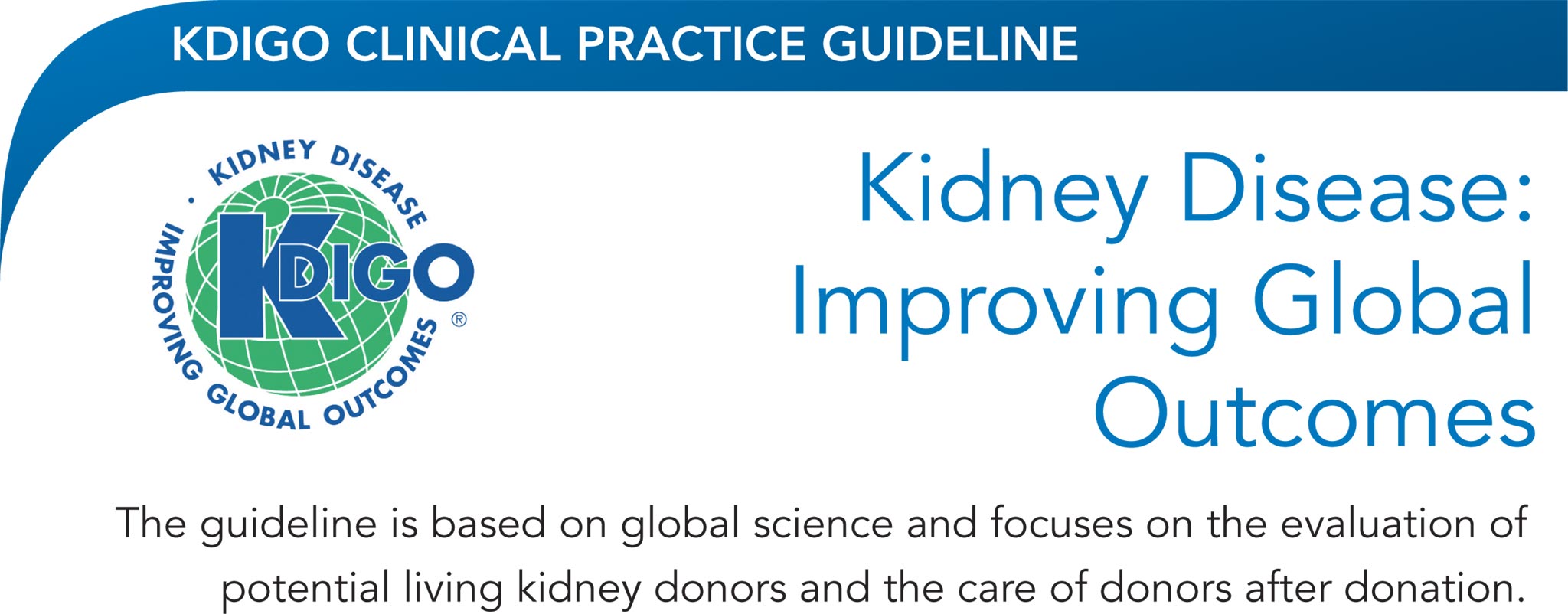
Living kidney donation is an important option for many patients with kidney failure. It does, of course, involve another individual who must make an informed decision about donating. The KDIGO Living Donor Guideline examines the benefits and risks involved in that decision. While it may considerably enhance the quality of life of the recipient, it may also involve risks for the donor. An expert Work Group, co-chaired by Drs. Amit Garg of Canada and Krista Lentine of the US, developed the guideline with assistance from an independent evidence review team from University of Minnesota and Minneapolis Veterans Affairs Center for Chronic Disease Outcomes Research.
This guideline was supported in part by The Transplantation Society. It also includes data analyses and an ESKD Risk Calculator developed by the Chronic Kidney Disease-Prognosis Consortium led by Dr. Josef Coresh of Johns Hopkins. The full text of the guideline and the calculator can be found on the KDIGO website: www.kdigo.org.
David Wheeler, co-chair of KDIGO said, “We are very pleased to provide this guideline to the global transplant and kidney communities so that informed and scientifically based information is available when living kidney donation is being considered. Our belief is that those decisions should be made with complete understanding of the risks and benefits involved for the donor.”
“Living donation is often the best chance our kidney failure patients have to resume a normal life and restored health. It is a unique part of today’s medical care where a person with perfectly normal health undergoes a major operation and gives up a part of his body solely to benefit another person. The benefit is truly great, usually for both of those involved as well as their families. However, such a major decision should be made with a full understanding of the facts regarding risk.” Dr. Wheeler added.
The guideline deals with many aspects of living donation, such as the evaluation of potential donors, selection of who can donate, the care of the donor both long and short term after donation and policies to assist donors. Living donors make thousands of transplants possible around the world every year and as such this guideline strives for a comprehensive approach to risk assessment of potential donors and a framework that advocates for transparent and defensible shared decision making.
KDIGO is a Belgian foundation committed to developing and implementing nephrology guidelines that improve patient outcomes on a global basis.
For further information please contact KDIGO at KDIGOcommunications@kdigo.org.

The TTS Education Committee is preparing the TTS 2018 Post-Graduate Course, aimed at both clinicians and investigators interested in refreshing their knowledge on practical and cutting edge topics. Over two days, June 30 and July 1, 2018, the program will cover topics related to Clinical and Basic Sciences. As a means to encourage inclusion and stimulate thought leadership in the field, the Post-Graduate Course will also have joint sessions specifically designed to benefit junior transplant professionals in achieving applicable know-how.
The joint sessions include subjects such as: the art of preparing and presenting slides, preparing an abstract and a manuscript, how to write a grant and how to understand and use statistics and big data in transplantation. Additionally, how to be an influential educator will also be part of the topics. For the first time, the course will also include a joint interactive session where clinical cases will be discussed among the audience and moderated by a panel of specialized experts. TTS members are invited to submit challenging clinical cases to be presented in this session.
Clinical Sessions will elaborate on immunologic evaluation and risk assessment, management of the highly-sensitized patients, pre-transplant work-up, cardiovascular complications, donor derived infections, pharmacogenomics and precision transplant medicine, amongst others.
The Basic Science topics will address an update on B Cell activation, inflammatory triggers and receptors, microbiome analysis, utilizing TCR and BCR-Seq to study antigen-specific immune responses, gene-specific nucleases and bio-engineering.
Stay tuned between now and the TTS 2018 Post-Graduate Course, and be alert to the webinar notifications in the TTS Tribune Pulse, the Society’s most frequent communication vehicle with its members.
Also, look out for the Education Committee’s upcoming webinars that include a module on pancreas, liver and patient wellness.
For more information or if you would like to contribute as an educator, please contact committees@tts.org.
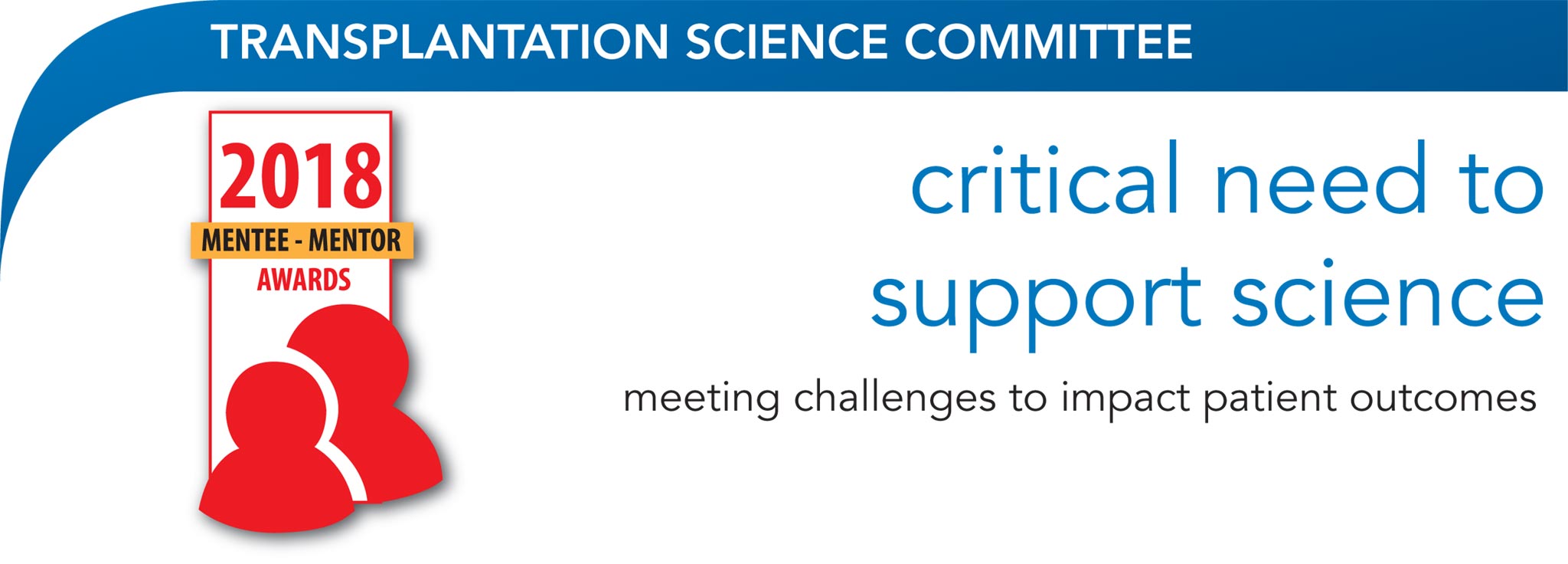
The most important mission of the Transplantation Science Committee is the promotion of basic and translational science in all its forms to the transplant community. Some of the most significant advances in our field have stemmed from discoveries made in the laboratory, ranging from new immune modulators, novel preservation methods, an understanding of transplant-specific molecular signatures and patient-specific risk factors.
There is therefore a need for all within the community to support science within their practice. This has always been challenging, but only from these challenges can an impact on patients be made. With increasing clinical loads, life pressures, and a strain on transplant science research, there is a particular impetus to ensure that budding scientists are given the recognition and support to advance. There is also a critical need to retain excellent basic scientists within our field, particularly given the highly competitive nature of basic science research and opportunities to transfer to other – often trendier – fields.
The Mentee-Mentor awards are aimed at doing just that – enabling those more experienced in the field to guide younger scientists and clinician scientists through the challenges of research. In May this year, 13 such awards were presented at the Transplant Science Symposium in Victoria, Canada. These awards highlight some of the highest quality research being performed, and we all look forward eagerly to the mentees’ subsequent publications.
Similarly, the Leslie Brent and Anthony Monaco Awards which are presented to the highest quality science publications made in the journal Transplantation each year highlight studies that have been meticulously performed and have the potential to make a clinical impact in the near future. These papers have often received the highest number of citations and views, demonstrating this likely impact on the field.
Keep an eye out for the announcements in the forthcoming issue of Transplantation – we can guarantee that they will make an impression on your practice.
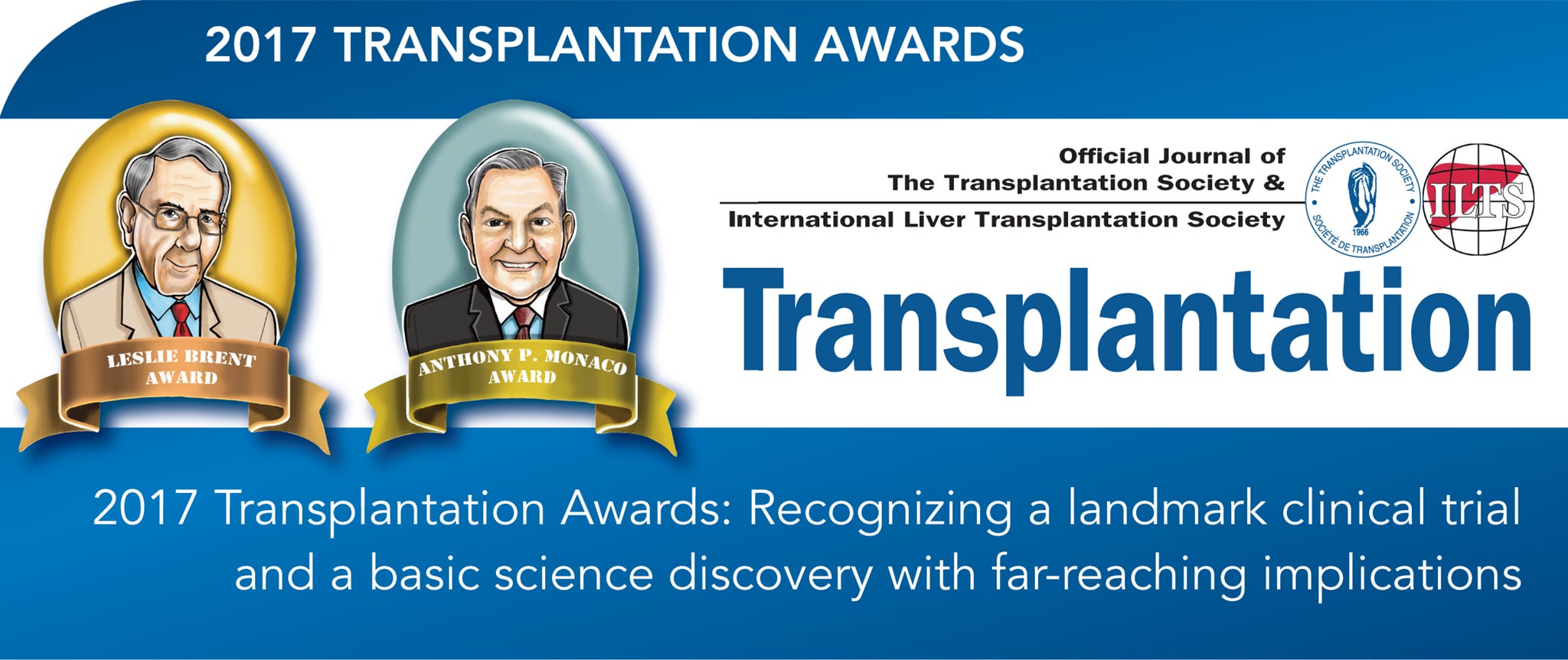
The Transplantation Science Committee together with The Transplantation Society and Transplantation are pleased to announce the best manuscripts published by the journal in 2016. Named after two pioneering giants, a selection committee that included editors of Transplantation, The Transplantation Society, in addition to members and chairs of the Transplantation Science Committee, selected two winners amongst a very competitive group of publications.
This year’s awards recognize manuscripts with important implications for transplantation.
2017 AWARD WINNERS
The Leslie Brent Award for the best transplant science paper for 2016 goes to Luciana L. Molinero and colleagues for their manuscript entitled “High-Fat Diet–Induced Obesity Enhances Allograft Rejection.”
The Anthony P. Monaco Award for the best translational or clinical paper is awarded to Edward K. Geissler and the SiLVER Co-Investigators for their randomized clinical trial of sirolimus use in liver transplant recipients with hepatocellular carcinoma, “Sirolimus Use in Liver Transplant Recipients With Hepatocellular Carcinoma: A Randomized, Multicenter, Open-Label Phase 3 Trial.”
We congratulate all authors on their achievements. See the November issue of Transplantation for the Transplantation Science Committee’s report on what made these manuscripts compelling.
Both manuscripts are freely available at TransplantJournal.com
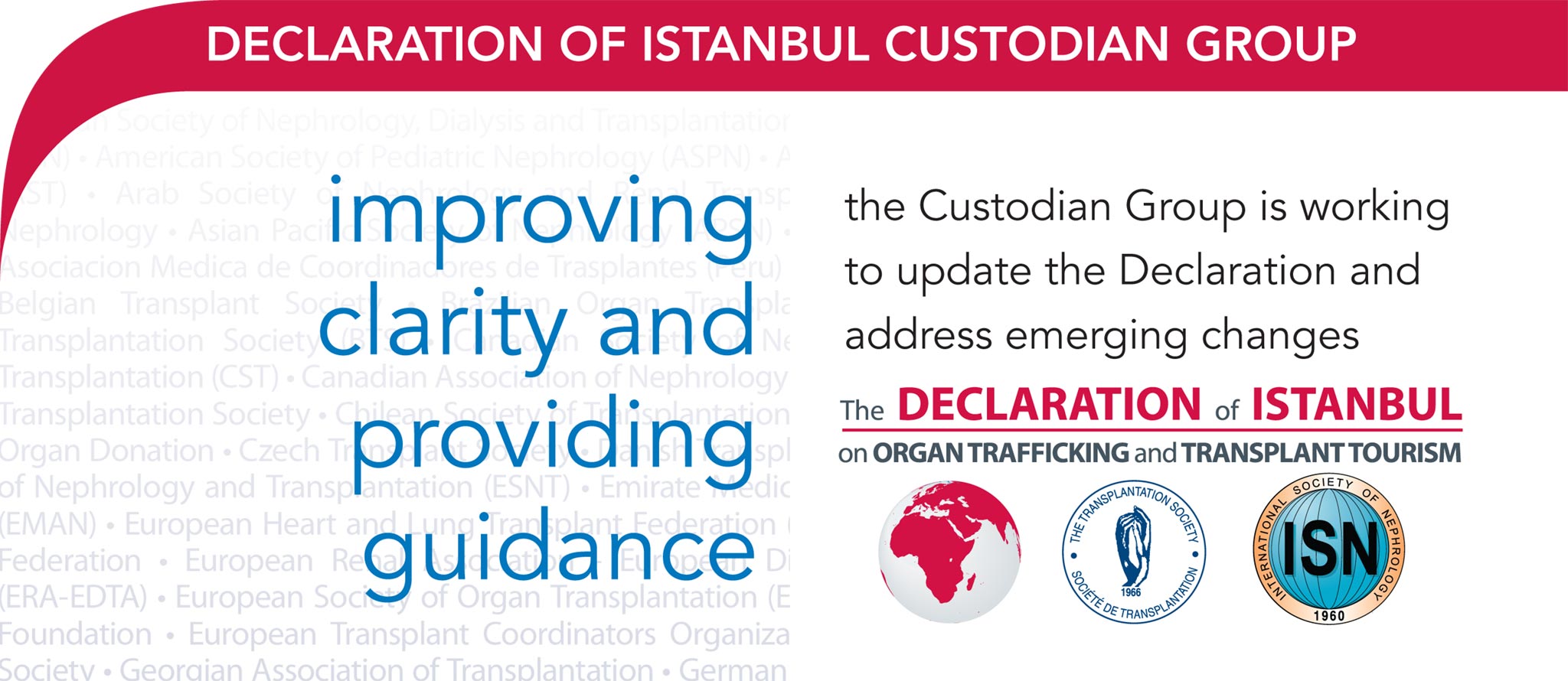
On the 9-10th of September, following the ISODP conference in Geneva, the Declaration of Istanbul Custodian Group (DICG) met for in-depth discussions regarding a proposed update of the Declaration for the 10th Anniversary in 2018. The update of the Declaration aims to improve clarity and facilitate understanding of the document as well as to ensure it continues to provide effective guidance for professionals and policy makers addressing new, emerging and persisting challenges in organ trafficking and ‘transplant tourism’.
A draft outlining proposed changes to the Declaration will be made public later this year for a period of 2-3 months during which time organizations and individuals may share feedback with the Update working groups via a survey. Webinars presenting the draft Update will be hosted by TTS during that period. Keep an eye on the www.declarationofistanbul.org website, and DICG social media for more information or register your details with admin@declarationofistanbul.org if you would like to be informed when the feedback period opens. The final Update will be presented during the International Congress of The Transplantation Society taking place in Madrid in June/July 2018.
The DICG, together with TTS, the ISN, the World Health Organization, the Transplantation Society of Latin America and the Caribbean (STALYC), and the Pontifical Academy of Sciences, recently joined with the Red/Consejo Iberoamericano de Donacion y Trasplantes (RCIDT) in expressing ethical opposition to a project known as the Global Kidney Exchange (GKE) program which has been the topic of considerable debate at recent international meetings. Some DICG Council members have already co-authored commentary papers discussing this issue, which can be found on the Declaration of Istanbul website. The DICG is currently working on a document that will assist transplant professionals and policy makers in understanding the ethical concerns of the proposed GKE program.
TTS members can learn more about the work of the DICG by visiting the website, or by contacting a member of the DICG Council based in their region. If you have any questions, you can find the list of current councilors on the website. To keep track of news relating to organ trafficking and transplant tourism, please follow the Facebook page (www.facebook.com/declarationofistanbul) or Twitter account (www.twitter.com/DoICustodianGp).

It is with great satisfaction that our Society, united with the Canadian Society of Transplantation (CST), closed our first joint meeting. More than 350 international professionals joined us in Halifax, NS, Canada, and they, along with our exhibitors and sponsors, made for an overwhelmingly successful meeting with ninety percent of conference attendees rating all aspects of the meeting and organization as very good to excellent.
The inaugural Mini Poster Oral Presentations and Posters of Distinction were so well attended and enjoyed that separate space away from general Poster viewing will be incorporated into future meeting planning.
Led by a Bagpiper to a memorable evening on the Harbour Queen cruise, CTRMS/TTS Travel Awards were presented and TTS President Nancy Ascher signed Certificates of Excellence to CTRMS Young Investigators Raquel Fernandez-Dacosta, Siddharth Sinha, Leah Steyn, Melissa Thompson, and Wuzheng Zhu. Our congratulations to Professor Gary Levy, who was honored with the CST Lifetime Achievement in Transplant Medicine and Science award.
We also are grateful to the Canadian National Transplant Research Program (CNTRP), Canadian Blood Services (CBS), American Society of Transplantation (AST), The Transplantation Society (TTS), Gallaher Membership Services, and the many sponsors who worked with us and supported us; and who continue like all of us to provide innovations and services that will improve the lives of all peoples of our world needing cellular & organ transplant, and regenerative medicine therapies.
To our CST and CTRMS colleagues, our partners in industry and government around the world, and to our Young Investigators who represent our future, thank you for making our 2017 Halifax Joint Congress a memorable success and harbinger of future accomplishments!
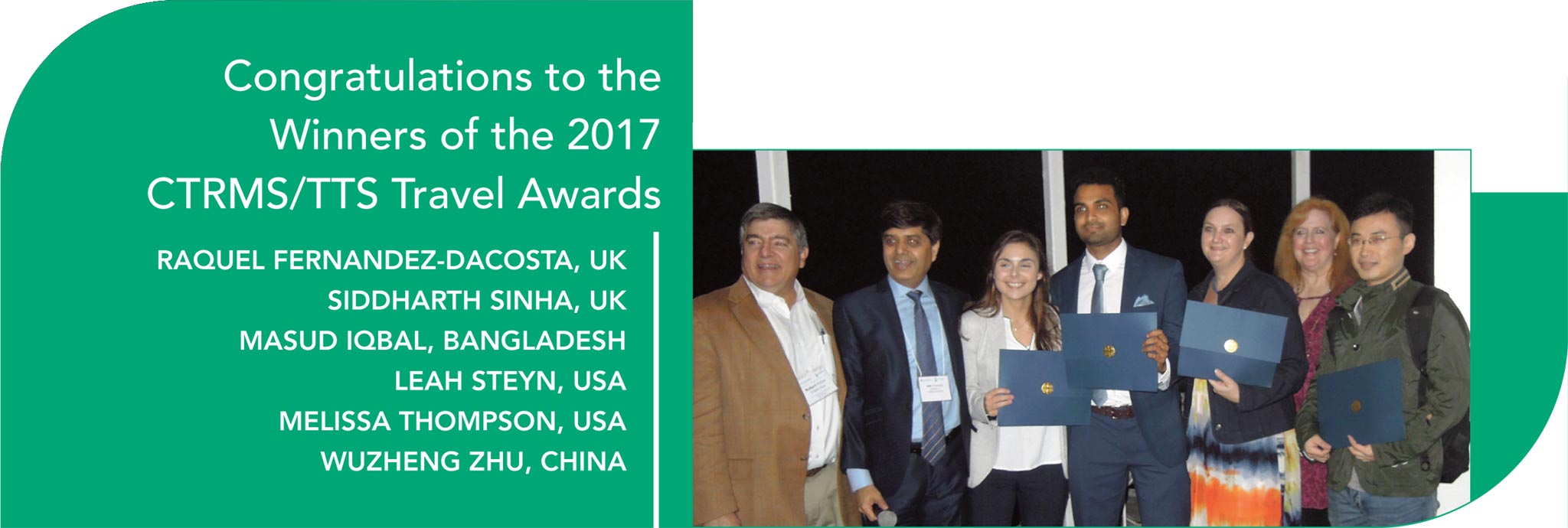

Over 450 donation experts from across the world attended the ISODP Congress in Geneva, organized by the ISODP as a Section of TTS, Professor Phillippe Morel from the University Hospital in Geneva, and Swiss Transplant. The congress was the leading event in the last two years summarizing what is new, what is well established and what needs further evaluation in the field of organ donation of both living and deceased donors. Information sharing and improving current practice are the main goals of the ISODP and this biennial congress once again highlighted these initiatives with high visibility and focus. Recordings will be available on the ISODP website soon.
Organizers fulfilled the promise to address controversial topics and to discuss new ways of improving organ donation. Dr. Alvin E. Roth, professor of economics and Nobel Laureate introduced a program of Global Kidney Exchange (GKE) with the intention to help people from developing economy countries, who are unable to raise funds even for dialysis treatment, to share organs from a voluntary live donor with a patient from a country with full health care coverage. The aim is to find a suitable transplant for a recipient and vice versa use the cost savings from dialysis to fund transplant in a foreign recipient. Lively debate illuminated the questions and controversy over this proposal. Professionals in the field of organ donation are not responsible for death determination but must be well versed in the evolving scientific practice in death determination.
As was stated in an earlier article, the DICG, together with TTS, the ISN, the World Health Organization, the Transplantation Society of Latin America and the Caribbean (STALYC), and the Pontifical Academy of Sciences, recently joined with the Red/Consejo Iberoamericano de Donacion y Trasplantes (RCIDT) in expressing ethical opposition to a Global Kidney Exchange program which has been the topic of considerable debate at recent international meetings. Some DICG Council members have already co-authored commentary papers discussing this issue, which can be found on the Declaration of Istanbul website. The DICG is currently working on a document that will assist transplant professionals and policy makers in understanding the ethical concerns of the proposed GKE program.
Keynote speaker Dr. Sam D. Shemie, critical care physician and ECMO specialist at the Montreal Children’s Hospital, delivered a stimulating lecture on “Harmonizing Practices in the Field of Determination of Death Globally.” His talk highlighted an approach to overcome the dualistic view of death as either brain death or circulatory death and instead derive a common death determination that can be certified worldwide.
The members of the society have elected a new board and council with Susan Gunderson, Minnesota, USA, as President for the upcoming two years.
Finally, we were pleased to announce the 15th Congress will be held in Dubai in November 2019.
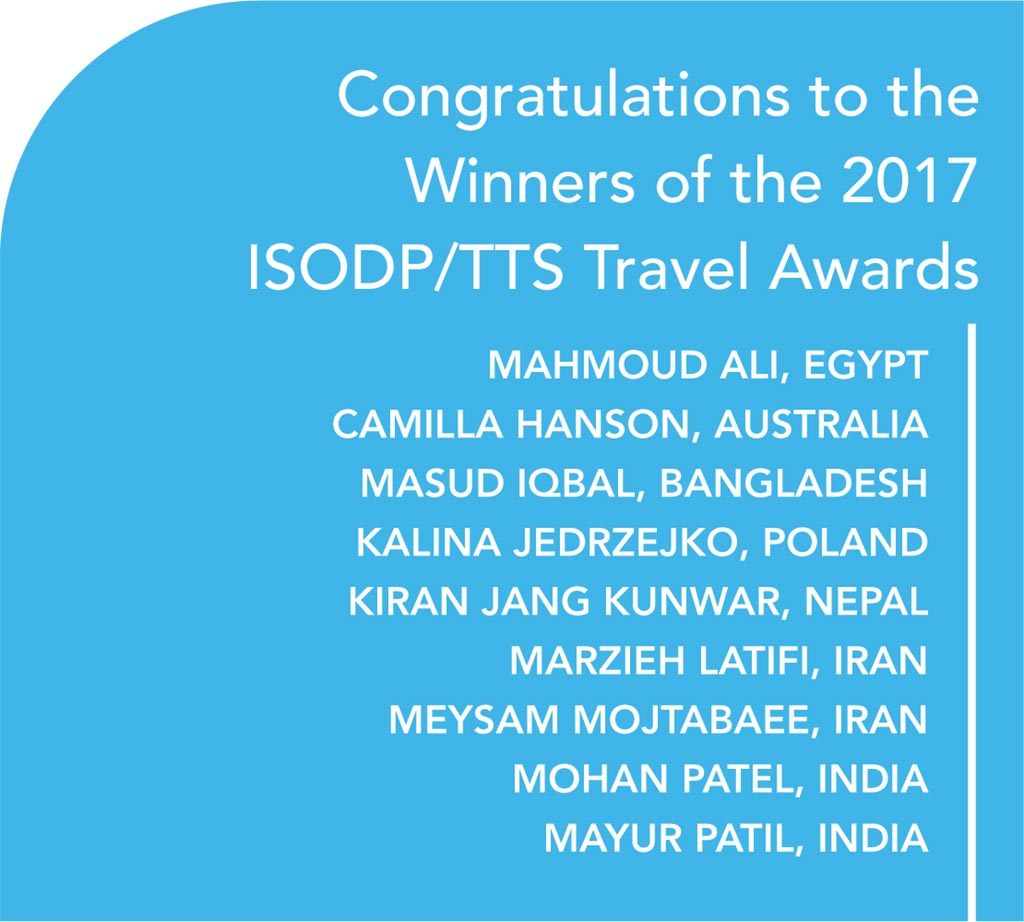

Our 14th Biennial International Xenotransplantation Association (IXA) Congress was recently held near the popular Inner Harbor of Baltimore, MD. The city was very welcoming and we had a very successful Congress, chaired by Dr. Richard N. Pierson III.
This Congress brought many highpoints, including the touching remembrance by friends and colleagues of the late Dr. David White, whom we honored for his significant contributions to the field of xenotransplantation.
We also welcomed new members to our Council. Honorary membership was awarded to Dr. Megan Sykes in recognition of her long-time commitment and major contributions to xenotransplantation. Dr. Sykes and other invited guests, including speakers from several companies focusing on xenotransplantation, spoke on hot topics of interest to our community. Opening our doors to be even more inclusive and welcoming, sessions were presented for Women in Transplantation, Young Investigators, and Theological and Ethical concerns, with representation from three major religions. We are pleased that young investigators, including recipients of the Scientific Awards, were well represented in all sessions. Moreover, a pre-meeting symposium was organized with the FDA to engage discussions on regulatory aspects relevant to bringing xenotransplantation to the clinic.
Under the guidance of Dr. Leo Buhler, our journal, Xenotransplantation, has shown a rising impact factor (3.9), highlighting the importance and interest in our work. Don’t forget to submit your manuscript to have a chance to win the 2017 Xeno-Prize!
We look forward to the 2018 TTS meeting in Madrid and our next IXA meeting, which will be held in Munich, Germany on October 10-13, 2019 (see preview). Don’t forget that even in a time of instant virtual communication, personal interactions can be very meaningful and rewarding. Please consider joining us there.
These are truly exciting times to be part of the IXA. All those who have an interest in xenotransplantation are encouraged to become active members of the IXA.
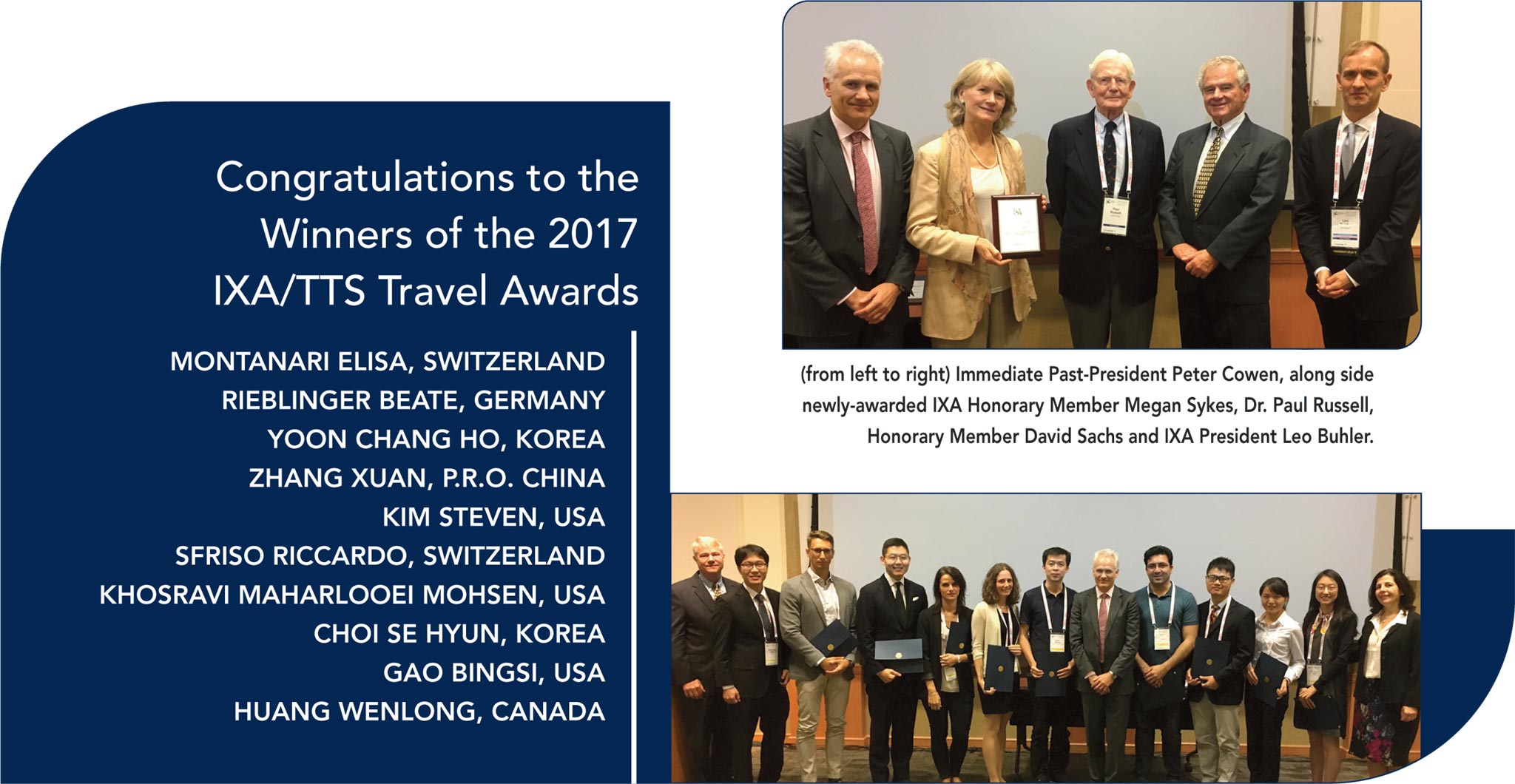
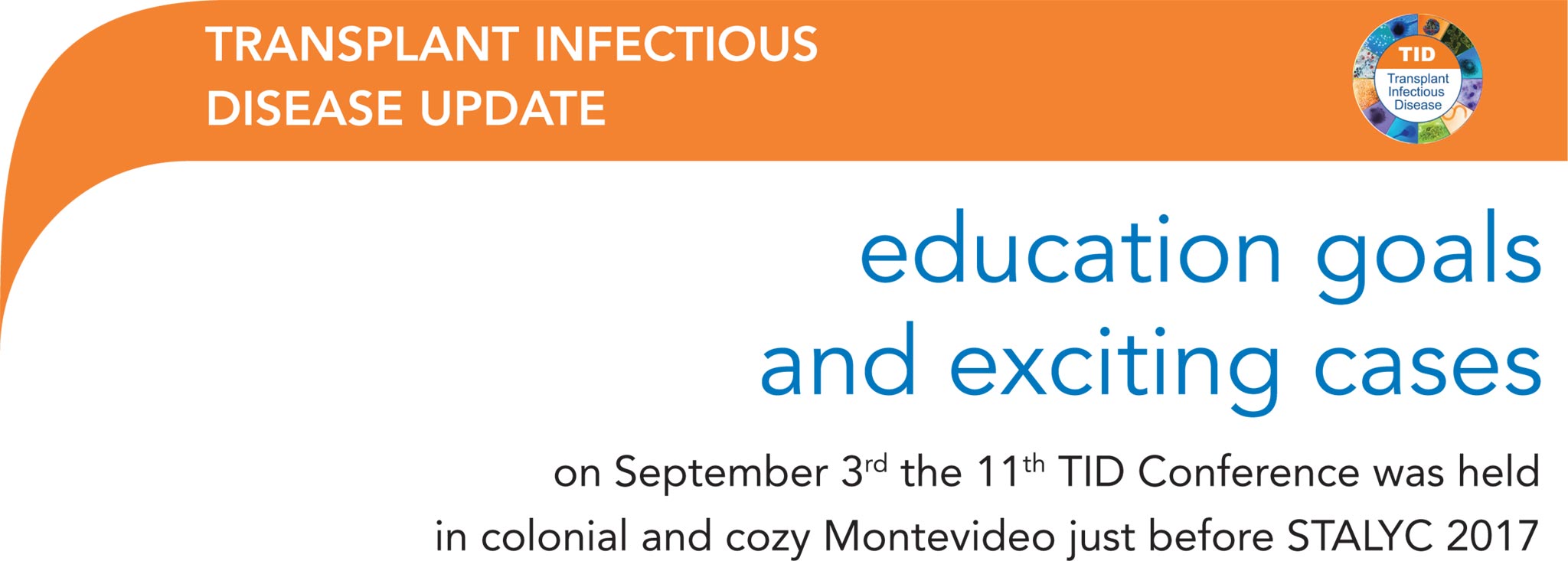
The full-day meeting included 14 captivating speakers from various continents, who lectured on 18 relevant topics divided in four exciting sessions: post-transplant infections – evaluating the risks; current challenges in regionally restricted infections; viral infections and vaccines; and exciting cases in transplant infectious diseases. Many of the updates focused on regionally-specific issues, including donor screening in the Tropics, the threat of emerging pathogens in South and Central America and endemic mycoses in the Southern Hemisphere.
With 66 registrants, the conference reached the TID educational goals and confirmed the international characteristic of TID receiving delegates from North America, Europe and South America. TID 2017 warmly welcomed Chile, Peru and Bolivia, countries participating for the first time in TID conference.
The two Exciting Case sessions showed an enthusiastic audience willing to acquire new knowledge, demonstrated by the great interaction between delegates and speakers.
Ending the day of activities, a wonderful dinner at the historic Opera House, accompanied by delicious Tannat wine and a magnificent tango show concluded the successful event.
Plans have begun for our next conference to be held in Madrid, just prior to TTS 2018. Please join us for another day of cutting edge topics in transplant infectious disease for the transplant clinician!
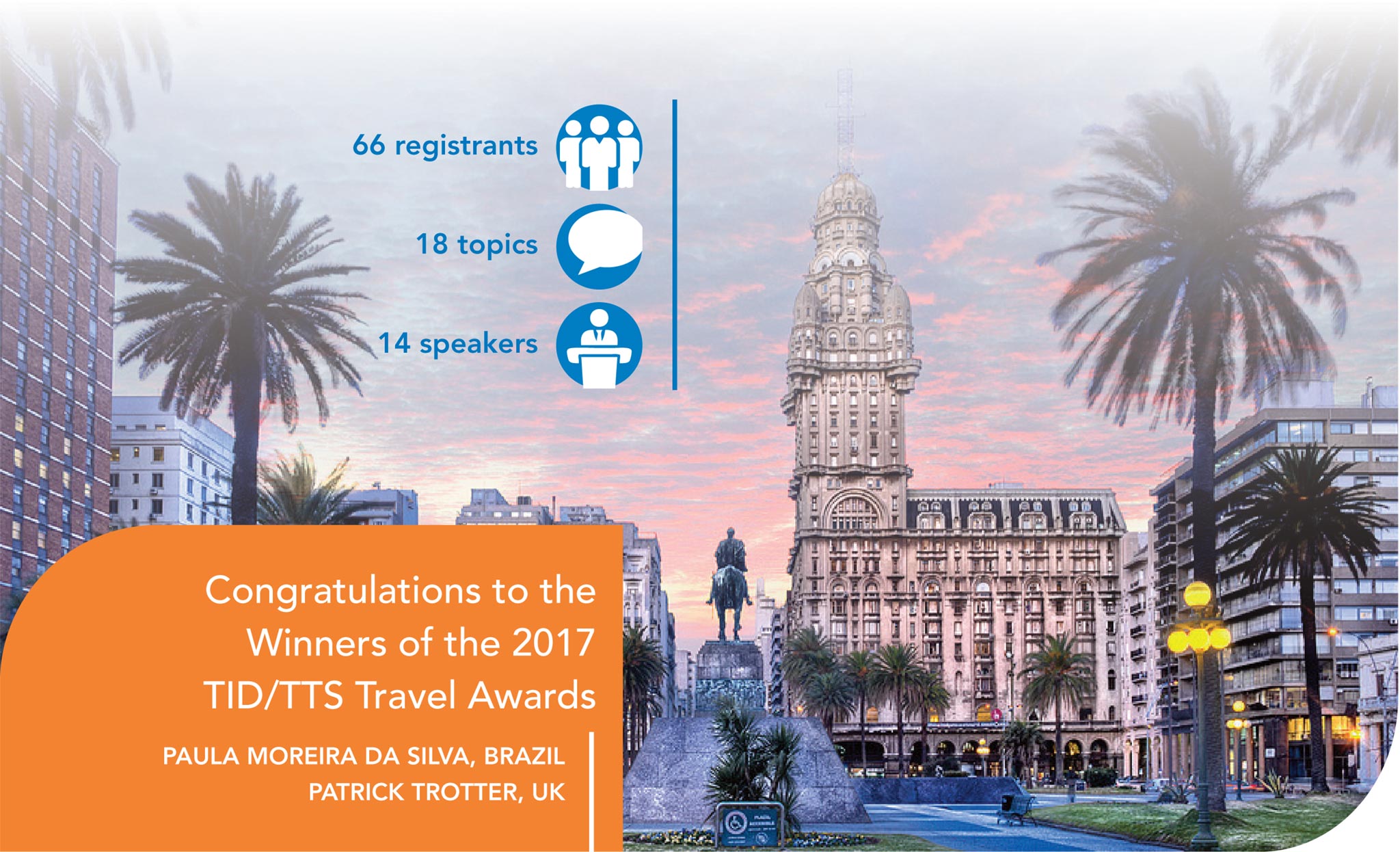
TTS OFFICERS AND COUNCILORS 2016–2018
To consolidate its position as the leading global organization, the Council has representation from all six regions of the world: Asia, Europe, Latin America, Middle East/Africa, North America and Oceania.
EXECUTIVE MEMBERS
| PRESIDENT Nancy Ascher |
| PRESIDENT-ELECT Mehmet Haberal |
| IMMEDIATE PAST PRESIDENT Philip J. O’Connell |
| VICE-PRESIDENT Marcelo Cantarovich |
| SECRETARY John J. Fung |
| SENIOR TREASURER Elmi Muller |
| TREASURER Stefan G. Tullius |
| HISTORIAN Randall E. Morris |
| INTERNATIONAL HEADQUARTERS Jean-Pierre Mongeau Executive Director |
COUNCILORS
| ASIA Hiroto Egawa Jongwon Ha S. Adibul Hasan Rizvi |
| EUROPE Beatriz Domínguez-Gil Peter J. Friend |
| LATIN AMERICA Gabriel E. Gondolesi Alejandro Niño Murcia |
| MIDDLE EAST / AFRICA Ifeoma Ulasi |
| NORTH AMERICA Medhat Askar Minnie Sarwal Peter G. Stock |
| OCEANIA Steven J. Chadban |
TRIBUNE CREDITS
Tribune is published by
The Transplantation Society (TTS).
Editor-in-Chief: Nancy K. Man
International Headquarters
International Headquarters
The Transplantation Society
505 boul. René-Lévesque Ouest
Suite 1401
Montreal, QC H2Z 1Y7 CANADA
T. +1.514.874.1717
F. +1.514.874.1716
E. info@tts.org
W. www.tts.org
Please contact any of our dedicated staff for any assistance you may require:
| Roman Beliaevski IT/Multimedia roman.beliaevski@tts.org |
| Roberto Colarusso Director of Technologies robert.colarusso@tts.org |
| Suzanne Landis Sections Manager suzanne.landis@tts.org |
| Amanda Mayer Membership Services & Exhibits Coordinator amanda.mayer@tts.org |
| Jean-Pierre Mongeau Executive Director jp.mongeau@tts.org |
| Catherin Parker Meetings Manager catherin.parker@tts.org |
| Chelsea Patriquin TTS Committees Coordinator chelsea.patriquin@tts.org |
| Denise Rainville Governance Director & Controller denise.rainville@tts.org |
| Devon Reid Administration Coordinator devon.reid@tts.org |
| Eugenia Siu Registration Coordinator eugenia.siu@tts.org |
| Mary Anna Smith Project Manager mary.smith@tts.org |
| Darren Woodbury Graphic Designer darren.woodbury@tts.org |
| Chi Hong Yeung Accounting Clerk chihong.yeung@tts.org |
Contact
Address
The Transplantation Society
International Headquarters
740 Notre-Dame Ouest
Suite 1245
Montréal, QC, H3C 3X6
Canada
Используйте Вавада казино для игры с бонусом — активируйте промокод и начните выигрывать уже сегодня!

